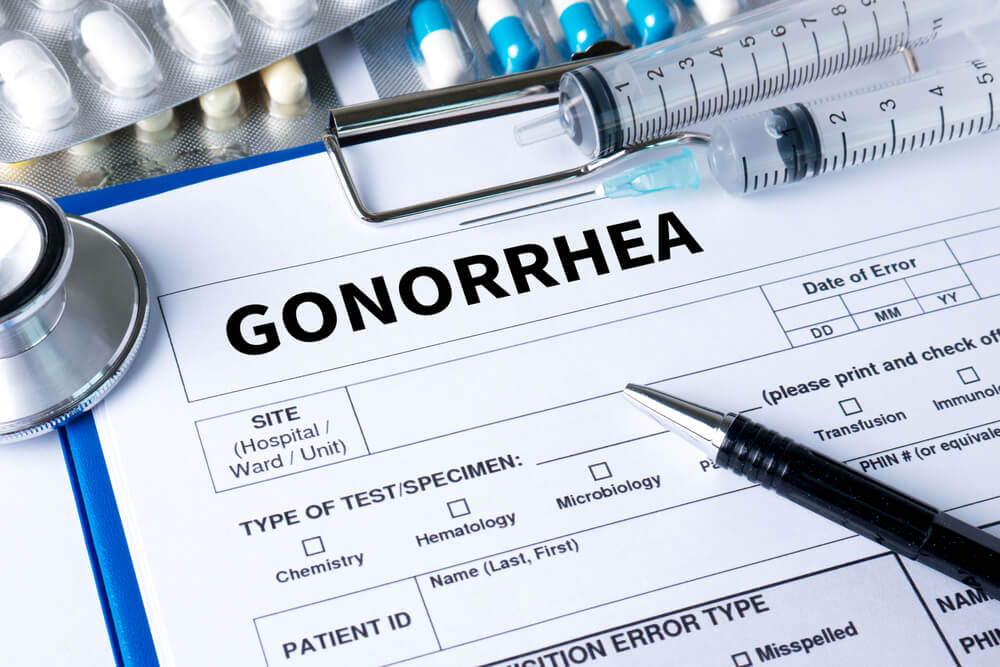If you or a loved one are diagnosed with this sexually transmitted disease and you begin gonorrhea treatment straight away, the recovery process is relatively seamless. Although gonorrhea should not be taken lightly, it is one of the most common STDs and one of the few curable ones. So what does gonorrhea treatment entail? And what does diagnosis look like? If you’re asking yourself these questions, you’re in the right place. This article features everything you need to know about the diagnosis and proper treatment of this sexually transmitted disease.
Of course, if you suspect you may have this illness, your first step will be to take a gonorrhea test. If you’re looking for the best professionals dedicated to provide you with the most detailed results, we recommend taking a gonorrhea test in South Miami.
With that in mind, here are the must-know facts about gonorrhea diagnosis, treatment, and more. Read on.
What is Gonorrhea?
Before explaining gonorrhea diagnosis and treatment, let’s quickly summarize what this sexually transmitted disease is and what causes it in the first place. In short, gonorrhea is a common infection caused by a bacterium that can infect both women and men. Usually, gonorrhea affects the throat, rectum, or the urethra, and in women, it can also affect the cervix.
Anal, vaginal, or oral sex are the most common ways gonorrhea spreads. However, infected mothers can pass on the disease to their babies during vaginal childbirth. Another way to pass on the disease is by sharing unwashed sex toys such as vibrators.

Gonorrhea Diagnosis: What to Expect
If you or a friend suspect gonorrhea (or another sexually transmitted disease), seek professional help immediately. The only way to be sure that you have gonorrhea is to go to a trusted clinic and get tested. We recommend booking an appointment with OB-GYN Specialists of South Miami for the best results.
It is possible to get a gonorrhea test within only a few days following sexual intercourse, but your doctor may recommend waiting for up to seven days. Patients who do not display any symptoms related to this STD can also get tested.
By opting for a gonorrhea test and receiving proper treatment early (before the disease has time to further manifest), you can significantly reduce your risk of further complications such as testicle infection and pelvic inflammatory disease or PID.
If you delay the diagnosis and treatment, you may need to face severe complications that are challenging to treat.
For instance, pregnant women who delay gonorrhea treatment may have:
- Premature labor and birth
- A miscarriage
- A newborn with conjunctivitis or permanent blindness
If the mother passes on the disease to the newborn and the child is not treated with proper antibiotics, there is a high risk of permanent and progressive vision damage.
Sometimes, untreated gonorrhea can also spread through the patient’s bloodstream, causing dangerous infections such as sepsis.
Who should get a gonorrhea test? Anyone who has had unprotected sexual intercourse should reach out to a medical professional and get tested. We also recommend getting a gonorrhea test if:
- You have another sexually transmitted disease
- If you or your sexual partner suspect gonorrhea symptoms
- If you have had unprotected sexual intercourse with a new person
- If you are not in a mutually exclusive sexual relationship with your partner
- If your partner tells you that they have a sexually transmitted disease such as gonorrhea
- If you are planning a pregnancy or are already pregnant
- If you notice an unusual discharge from your vagina or the tip of the penis
Where can you get a gonorrhea test? You can get tested for gonorrhea at:
- Your GP surgery
- A private clinic
- A GUM clinic or a sexual health clinic
- A Young people’s or contraceptive clinic
In some cases, you can also purchase a gonorrhea test from your local pharmacy. Keep in mind that these tests are not the most accurate, and it is always best to consult with a medical professional, even if you tested yourself at home.
What can I expect from the gonorrhea diagnosis?
To determine whether you have this sexually transmitted disease, your healthcare provider will collect a sample of your cells. Then, these cells will be analyzed. There are two ways in which the samples may be collected. These include:
- Take a swab of the affected area, such as the vagina, rectum, urethra, or throat.
- Do a urine test to find gonorrhea causing bacteria in the urethra.
If you’re wondering how to test for gonorrhea, we have another option for you. Women can also opt for home test kits. These kits for gonorrhea diagnosis contain vaginal swabs that you can send to a laboratory for further testing. When the results are ready, you can choose to receive them via a text message or email.
Your healthcare provider may suggest testing for other STDs such as chlamydia. Namely, gonorrhea may boost your risk of sexually transmitted diseases.
You may also want to test for HIV. Depending on the risk factors unique to you, you may need to test for other STDs as well.
Gonorrhea Treatment: What Are My Options?
Now that you are aware of how to test for gonorrhea, it is time to discuss the different treatment options. Remember, the treatment methods will vary based on the person’s needs, risk factors, age, and gender. Moreover, adults, partners, and babies require different gonorrhea treatments.
If you are an adult with this STD, your doctor will recommend antibiotics for gonorrhea. The Centers for Disease Control and Prevention (CDC) recommend patients with gonorrhea receive treatment with the ceftriaxone antibiotic. Some antibiotics for gonorrhea are ineffective due to Neisseria gonorrhoeae, the drug-resistant strain.
Ceftriaxone is combined with Zithromax or oral azithromycin.
Individuals who are allergic to some antibiotics for gonorrhea (like ceftriaxone), may opt for Factive or gemixfloxacin. Alternatively, oral azithromycin and injectable gentamicin may prove to be helpful.
If you have a sexual partner, we highly recommend both of you get tested (even if there are no visible symptoms of the disease). If you receive the treatment, but your partner does not, he or she may pass it on to you once more.

Gonorrhea Symptoms to Keep in Mind
Here are some of the most common symptoms of gonorrhea. Note that not everyone will experience these signs of a sexually transmitted disease. That said, the most common symptoms and signs in men and women include:
- Painful urination
- Increased discharge from the vagina or the tip of the penis
- Swelling or pain in one testicle
- Vaginal bleeding between menstrual cycles
- Pelvic or abdominal pain
As mentioned, gonorrhea can also spread to other body parts. For example, if it spreads to the rectum, patients may experience anal itching and pain. Whereas, gonorrhea that affects the patient’s eyes can cause sensitivity to light and eye pain.
If you or someone dear to you is bothered by signs and symptoms of a sexually transmitted disease such as gonorrhea, do not hesitate and reach out to professionals.
If you are looking for the best medical experts in the field, give us a call. Located in South Miami, OB-GYN Specialists guarantee only the highest-grade results. Book your first appointment today.


